Retaliation is one of the most common legal issues employees face. Yet, many workers do not fully understand what it means or how the law protects them. Every year, thousands of employees file complaints with federal and state agencies alleging retaliation after speaking up about workplace problems. The U.S. Equal Employment Opportunity Commission (EEOC) reports that retaliation is the most frequent basis for discrimination charges in the United States, accounting for more than half of all claims filed.
Understanding what retaliation is in the workplace is essential because it touches on some of the most sensitive and high-stakes areas of employment law. Employees who report harassment, wage violations, or other unlawful practices often fear that their honesty could cost them their jobs. On the other hand, employers may misunderstand the boundaries of discipline and inadvertently cross the line into retaliation. This creates a legal gray area where careers, reputations, and livelihoods are at stake.
Employees facing retaliation often find themselves uncertain about their rights and how the law applies to their situation. Retaliation in the workplace can take many forms, ranging from obvious actions, such as termination, to more subtle changes, including exclusion or reduced hours. Understanding how retaliation interacts with at-will employment, the protections available under federal and state law, and the steps employees can take is critical. With the proper knowledge and legal support, workers can recognize unlawful behavior, safeguard their rights, and hold employers accountable when retaliation occurs.

What Is Retaliation in the Workplace?
Retaliation occurs when an employer takes adverse action against an employee because that employee engaged in a legally protected activity. Protected activities include:
- Reporting workplace discrimination or harassment
- Filing a complaint about wage and hour violations
- Participating in an investigation by the EEOC or the Department of Labor
- Requesting accommodations for a disability or religious practice
- Asserting other legal rights under employment laws
According to the EEOC, retaliation in the workplace is not limited to firings or demotions; it can also include other forms of adverse action. It can also include subtler actions, such as exclusion, reassignment, or unwarranted discipline, if these actions would discourage a reasonable worker from asserting their rights.
Examples of Retaliation in the Workplace
Not every negative experience at work qualifies as retaliation. Employers may take disciplinary actions for legitimate reasons such as poor performance or misconduct. However, when punishment is tied directly to a protected activity, retaliation in the workplace may have occurred. Examples include:
- Termination or demotion shortly after an employee files a complaint
- Pay cuts, loss of benefits, or reduced hours linked to protected activity
- Negative performance reviews are not supported by actual performance
- Reassignment to undesirable shifts, locations, or duties
- Hostile treatment, exclusion, or harassment by managers or colleagues
The American Bar Association (ABA) calls retaliation “The Civil Rights Issue of Our Time” and notes that courts often evaluate retaliation claims by looking at whether the employer’s actions would dissuade a reasonable worker from making or supporting a complaint.
Retaliation and At-Will Employment
Many employees assume that, because they live in an at-will employment state, they have little to no protection against termination or punishment. Under the at-will doctrine, employers can generally terminate employees for any reason or no reason at all, as long as it is not illegal.
However, at-will employment does not give employers the right to retaliate against employees. Federal and state laws create essential exceptions. The National Conference of State Legislatures (NCSL) explains that even in at-will states, employers cannot fire or discipline employees for engaging in protected activities, such as reporting discrimination or filing wage complaints.
In short:
- At-will employment gives employers broad discretion.
- Retaliation laws carve out exceptions to protect employee rights.
- Employees who report unlawful behavior remain protected regardless of their at-will status.
Federal and State Retaliation Protections
Several federal laws protect employees from retaliation, including:
- Title VII of the Civil Rights Act of 1964 – Protects employees who report workplace discrimination or harassment.
- Fair Labor Standards Act (FLSA) – Protects employees who file wage or overtime complaints.
- Americans with Disabilities Act (ADA) – Protects workers requesting reasonable accommodations.
- Age Discrimination in Employment Act (ADEA) – Protects older workers who assert rights under the law.
States also provide additional protections. While laws vary, many states, including Florida and Georgia, recognize wrongful termination claims when retaliation is involved. Employees should review their state’s employment laws and consult an attorney to understand their rights and responsibilities.
How Courts Evaluate Retaliation Claims
When evaluating whether retaliation in the workplace occurred, courts often look for three main elements:
- Protected Activity – Did the employee engage in a protected activity such as filing a complaint or requesting an accommodation?
- Adverse Action – Did the employer take a materially adverse action, such as firing, demoting, or harassing the employee?
- Causal Connection – Is there a link between the protected activity and the adverse action?
Even subtle changes—such as excluding an employee from meetings or cutting work hours—can sometimes qualify as retaliation if they would discourage a reasonable person from exercising their rights.
How Employees Should Respond
Navigating retaliation in the workplace can be difficult, but if you believe you are experiencing it, there are important steps you can take to protect your rights and strengthen your case:
- Document Everything: Keep records of emails, performance reviews, complaints filed, and changes in work conditions.
- Review Workplace Policies: Many companies have anti-retaliation policies that can be invoked internally.
- File a Complaint: Contact the EEOC or DOL to file a formal complaint. These agencies investigate retaliation claims.
- Seek Legal Counsel: An employment attorney can explain how to handle retaliation in the workplace by evaluating your case, protecting you from further harm, and pursuing remedies through negotiation, settlement, or litigation.
Why Legal Representation Matters
Retaliation claims are rarely straightforward. Employers often defend themselves by citing performance issues, restructuring needs, or other justifications for their actions. Employees, on the other hand, must show a clear link between their protected activity and the adverse action they suffered. Without strong legal support, valid claims can be overlooked, dismissed, or undercompensated.
At Cantrell Schuette, our team of attorneys focuses on ensuring employees have a voice when workplace retaliation threatens their livelihood. We know how to build strong cases, navigate both federal and state laws, and hold employers accountable for their actions. Whether through negotiation, settlement, or litigation, our team works tirelessly to protect employees from further harm and secure the justice they deserve.
If you believe you have faced retaliation in the workplace, you do not have to face it alone. The law provides strong protections even in at-will employment states, and an experienced retaliation attorney can help you assert those rights. Contact Cantrell Schuette today to discuss your situation, learn your options, and take the next step toward safeguarding your career and your future.



